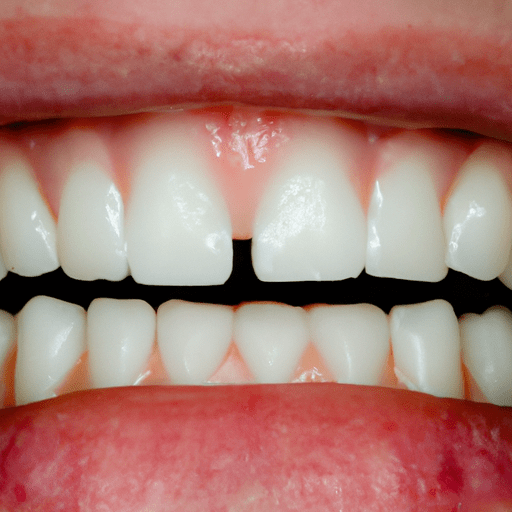Have you ever experienced a ringing or buzzing sound in your ears while trying to fall asleep? This phenomenon, known as tinnitus, can be incredibly frustrating and disruptive to sleep. But did you know that tinnitus may actually be linked to another common sleep disorder? In this article, we will explore the connection between sleep apnea and tinnitus, shedding light on how these two conditions are intertwined and offering potential solutions for finding relief. So, if you’re tired of trying to ignore that constant ringing in your ears, read on to unravel the intriguing relationship between sleep apnea and tinnitus.

Overview of Sleep Apnea
Sleep apnea is a sleep disorder characterized by brief interruptions in breathing during sleep. These interruptions, known as apneas, can occur multiple times throughout the night and can last for several seconds or even minutes. This can lead to a disruption in the normal sleep cycle and result in various health issues. Sleep apnea is a common condition that affects both children and adults.
Definition of Sleep Apnea
Sleep apnea is defined as a sleep disorder characterized by recurrent episodes of partial or complete cessation of breathing during sleep. It is primarily classified into three types: obstructive sleep apnea, central sleep apnea, and complex sleep apnea syndrome.
Types of Sleep Apnea
-
Obstructive Sleep Apnea (OSA): This is the most common type of sleep apnea, accounting for approximately 84% of all cases. It occurs when the throat muscles relax and obstruct the airway, causing breathing difficulties during sleep.
-
Central Sleep Apnea (CSA): Central sleep apnea is less common and occurs when the brain fails to send proper signals to the muscles that control breathing. This leads to a lack of effort to breathe during sleep.
-
Complex Sleep Apnea Syndrome (CSAS): This type of sleep apnea is a combination of both obstructive and central sleep apnea. It is also known as treatment-emergent central sleep apnea and typically occurs when an individual with pre-existing obstructive sleep apnea starts using positive airway pressure therapy.
Prevalence and Symptoms
Sleep apnea is a widespread sleep disorder, with an estimated 20 million adults in the United States alone affected by it. The prevalence of sleep apnea increases with age, and men are more likely to be affected than women.
Some common symptoms of sleep apnea include loud snoring, excessive daytime sleepiness, waking up abruptly with a choking or gasping sensation, morning headache, irritability, difficulty concentrating, and restless sleep. It is important to note that not all individuals with sleep apnea experience these symptoms, and the severity of symptoms can vary from person to person.
Overview of Tinnitus
Tinnitus refers to the perception of sound in the ears or head when no external sound source is present. It is commonly described as a ringing, buzzing, hissing, or whistling sound, although the specific sound may vary from person to person. Tinnitus is not a condition itself but rather a symptom of an underlying issue.
Definition of Tinnitus
Tinnitus is defined as the perception of sound in one or both ears or in the head when no external source of sound is present. It can be continuous or intermittent and can range in severity from mild to debilitating. Tinnitus can affect individuals of all ages and is a common condition.
Causes and Symptoms
Tinnitus can be caused by various factors, including damage to the inner ear, exposure to loud noise, age-related hearing loss, earwax blockage, certain medications, and underlying health conditions, such as cardiovascular disorders.
Symptoms of tinnitus include hearing sounds that are not present in the external environment, difficulty sleeping, trouble concentrating, irritability, anxiety, and depression. The impact of tinnitus on an individual’s life can vary, with some individuals experiencing mild annoyance and others experiencing significant distress and impairment in daily activities.
Prevalence of Tinnitus
Tinnitus is a prevalent condition, with millions of people worldwide experiencing it at some point in their lives. According to the American Tinnitus Association, approximately 15% of the global population, or around 50 million people, experience chronic tinnitus. It is more common in older adults and tends to be more prevalent in individuals with hearing loss.
Understanding Sleep Apnea
Sleep apnea and tinnitus are two distinct conditions, but they can be interconnected. Understanding the relationship between these two conditions can help shed light on their shared risk factors and potential treatment approaches.
Connection Between Sleep Apnea and Tinnitus
Research suggests that individuals with sleep apnea may be more likely to experience tinnitus compared to those without sleep apnea. The exact nature of the connection between these conditions is not yet fully understood, but several theories have been proposed.
One possible explanation is that both sleep apnea and tinnitus share common risk factors, such as obesity and age-related changes. Additionally, sleep apnea can cause physiological changes in the body, including decreased oxygen levels and alterations in blood flow, which may contribute to the development or worsening of tinnitus.
Common Sleep Apnea Symptoms
Sleep apnea can manifest through various symptoms, including loud and disruptive snoring, pauses in breathing during sleep, gasping or choking during sleep, excessive daytime sleepiness, morning headaches, and difficulty concentrating. These symptoms should not be ignored, as they can significantly impact a person’s quality of life and overall health.
Impact of Sleep Apnea on Overall Health
Untreated sleep apnea can have serious consequences for an individual’s overall health. It has been linked to an increased risk of cardiovascular problems, such as high blood pressure, heart disease, and stroke. Sleep apnea can also lead to daytime fatigue, impaired cognitive function, mood disturbances, and a higher likelihood of accidents or injuries.
Understanding Tinnitus
Tinnitus can have a significant impact on an individual’s quality of life, especially when it interferes with sleep. Understanding the relationship between tinnitus and sleep apnea can provide insights into how these two conditions influence each other.
Connection Between Tinnitus and Sleep Apnea
While the exact connection between tinnitus and sleep apnea is not yet fully understood, research suggests that the presence of one condition may worsen the symptoms of the other. Sleep disturbances caused by sleep apnea can exacerbate tinnitus symptoms, leading to increased annoyance and distress.
Common Tinnitus Symptoms
Tinnitus can manifest through various symptoms, with the perception of sound being the primary symptom. Common tinnitus symptoms include ringing, buzzing, hissing, roaring, or whistling sounds in the ears or head. The severity and impact of these symptoms can vary among individuals, with some experiencing mild annoyance and others facing significant disruption in their daily lives.
Impact of Tinnitus on Sleep Quality
Tinnitus can make it challenging to fall asleep or stay asleep, resulting in poor sleep quality. The persistent sound can become more noticeable in a quiet environment, making it harder to relax and fall asleep. sleep deprivation caused by tinnitus can lead to daytime drowsiness, difficulty concentrating, and decreased overall well-being.
Sleep Apnea and Tinnitus: Shared Risk Factors
Although sleep apnea and tinnitus are distinct conditions, they share common risk factors that can contribute to their development or exacerbation.
Obesity and its Link to Sleep Apnea and Tinnitus
Obesity is a significant risk factor for both sleep apnea and tinnitus. Excess weight can contribute to the narrowing of the airway, leading to obstructive sleep apnea. It can also result in increased inflammation and oxidative stress, which may worsen tinnitus symptoms.
Age and its Association with Sleep Apnea and Tinnitus
Both sleep apnea and tinnitus are more prevalent in older adults. Age-related changes in the body, such as muscle tone and hearing loss, can increase the risk of developing sleep apnea and tinnitus.
Gender and its Influence on Sleep Apnea and Tinnitus
Sleep apnea and tinnitus are more common in males compared to females, although both can affect individuals of any gender. This gender disparity may be due to hormonal differences, anatomical factors, or lifestyle factors.
Mechanisms Linking Sleep Apnea and Tinnitus
Several mechanisms have been proposed to explain the connection between sleep apnea and tinnitus. While more research is needed to fully understand these mechanisms, current findings provide valuable insights into the potential interactions between these two conditions.
Neurological Pathways and Shared Neural Mechanisms
Both sleep apnea and tinnitus involve the central nervous system. Dysfunction in neural pathways and abnormal activity in certain brain areas may contribute to the development or exacerbation of both conditions. Understanding these shared neural mechanisms can aid in the development of targeted treatment approaches.
Inflammation and Oxidative Stress
Inflammation and oxidative stress can play a role in the development and progression of both sleep apnea and tinnitus. Sleep apnea-induced intermittent hypoxia and oxygen fluctuations can trigger systemic inflammation and oxidative stress, which may impact the auditory system and worsen tinnitus symptoms.
Alterations in Blood Flow and Oxygen Levels
Sleep apnea can lead to changes in blood flow and oxygen levels, affecting various organs and body systems, including the auditory system. Reduced blood flow and oxygen delivery to the auditory structures may contribute to tinnitus and its associated symptoms.

Diagnosing and Treating Sleep Apnea and Tinnitus
Prompt and accurate diagnosis of sleep apnea and tinnitus is crucial for effective management and treatment.
Sleep Studies and Diagnosis of Sleep Apnea
Sleep apnea is typically diagnosed through a sleep study called polysomnography. This non-invasive test monitors various physiological parameters during sleep, such as brain activity, eye movements, heart rate, and respiratory effort. The data gathered from the sleep study helps in identifying the presence and severity of sleep apnea.
Management and Treatment Options for Sleep Apnea
The treatment of sleep apnea depends on its severity and the specific type of sleep apnea. It may include lifestyle modifications, such as weight loss and avoiding sleep-depriving habits, positional therapy, continuous positive airway pressure (CPAP) therapy, oral appliances, and, in some cases, surgical interventions.
Evaluation and Diagnosis of Tinnitus
The diagnosis of tinnitus involves a medical evaluation and a comprehensive assessment of an individual’s symptoms and medical history. This evaluation helps in ruling out potential underlying causes and determining the most appropriate course of treatment.
Management and Treatment Options for Tinnitus
The management of tinnitus focuses on addressing its underlying causes and alleviating its symptoms. Treatment options include sound masking or therapy, cognitive-behavioral therapy, hearing aids, tinnitus retraining therapy, and, in some cases, medication. The choice of treatment depends on the severity of tinnitus and its impact on an individual’s daily life.
Impact of Treating Sleep Apnea on Tinnitus
Treating sleep apnea can have a positive impact on tinnitus symptoms. Addressing the underlying cause of tinnitus by managing sleep apnea can help reduce the severity and annoyance of tinnitus.
Positive Effects of Sleep Apnea Treatment on Tinnitus
Studies have shown that treating sleep apnea with interventions such as CPAP therapy can lead to a reduction in tinnitus symptoms. Improvements in sleep quality and oxygen levels achieved through sleep apnea treatment have been associated with a decrease in tinnitus severity.
Case Studies and Testimonials
Numerous case studies and testimonials from individuals who have undergone sleep apnea treatment have reported a reduction in tinnitus symptoms. These firsthand accounts highlight the potential benefits of addressing sleep apnea in managing tinnitus.
Importance of Seeking Medical Help
Recognizing the signs and symptoms of sleep apnea and tinnitus is crucial for seeking timely medical evaluation and appropriate treatment.
Recognizing the Signs and Seeking Evaluation
If you experience symptoms such as loud snoring, pauses in breathing during sleep, excessive daytime sleepiness, or tinnitus symptoms, it is important to seek medical evaluation. Consulting with a healthcare professional specializing in sleep medicine or otolaryngology can help determine the underlying cause of your symptoms and guide you toward effective treatment options.
Consequences of Untreated Sleep Apnea and Tinnitus
Leaving sleep apnea and tinnitus untreated can have significant consequences on your health and well-being. Both conditions can lead to chronic sleep deprivation, impaired cognitive function, increased risk of accidents, and decreased quality of life. Seeking appropriate management and treatment can help prevent these potential consequences.
Future Research and Outlook
While significant progress has been made in understanding the relationship between sleep apnea and tinnitus, there is still much to learn. Future research endeavors hold promise for uncovering novel treatment approaches and advancing our understanding of the underlying mechanisms linking these two conditions.
Emphasis on Continued Research
Continued research is essential to deepen our understanding of the complex relationship between sleep apnea and tinnitus. Exploring the shared risk factors, underlying mechanisms, and treatment outcomes can help improve the quality of life for individuals affected by these conditions.
Potential Discoveries and Advancements
Future research may unveil new diagnostic tools, innovative treatment modalities, and personalized approaches to managing sleep apnea and tinnitus. Advances in technology and interdisciplinary collaboration are likely to shape the future of sleep apnea and tinnitus research, paving the way for improved patient outcomes and enhanced quality of life.
In conclusion, sleep apnea and tinnitus are two distinct conditions that can have an interconnected relationship. Understanding the shared risk factors, underlying mechanisms, and treatment options can help individuals affected by these conditions seek appropriate medical help. Prompt diagnosis and effective management can lead to improvements in sleep quality, tinnitus symptoms, and overall well-being. With ongoing research and advancements, the future holds hope for further understanding and improved outcomes for individuals with sleep apnea and tinnitus.








